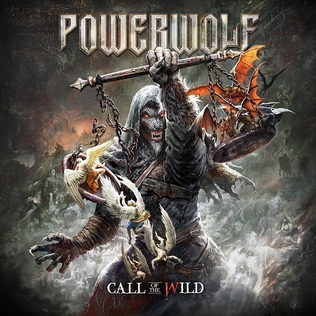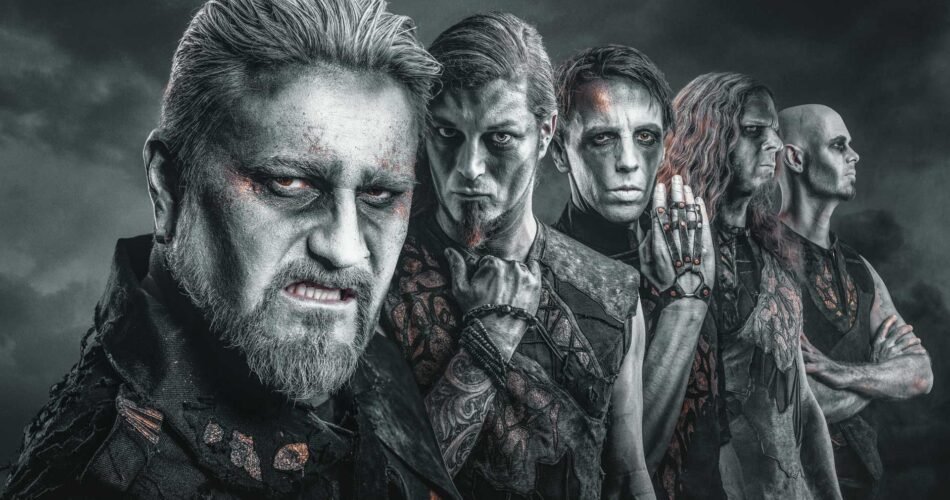Is Powerwolf christian? This is a question that has often emerged in the realms of heavy metal and religious discussions alike. Powerwolf, a German power metal band known for their dark, religious and historical themes, command attention with their bombastic sound and theatrical performances. But behind the face paint and the elaborate stage shows lie questions about the band’s faith and intentions—are they advocates for Christianity, or is their use of Christian imagery merely a performative aspect of their identity?
Is Powerwolf Christian? The Answer
No, Powerwolf is not a Christian band in the traditional sense. Their use of Christian and religious symbolism is a thematic choice for storytelling and theatricality rather than a reflection of the members’ personal faiths. The band members have often clarified in interviews that they are entertainers and musicians first, using religious motifs as part of their artistic expression.
People may wonder if Powerwolf is Christian because of their frequent use of religious iconography and song titles that reference Christianity, such as “Amen & Attack” or “Sanctified with Dynamite”. The band’s name itself, ‘Powerwolf’, juxtaposes strength and wildness with a creature that is both feared and revered in fables and folklore. Their lyrics often weave tales of werewolves and spiritual warfare, both of which captivate their audience and spark curiosity about their beliefs.

Powerwolf’s Statements on Christian Faith
Powerwolf’s public statements regarding their Christian beliefs have often been to dispel the notion that they preach or advocate for the faith. They have consistently maintained that their music should be seen through the lens of entertainment and artistry. The theatrical elements that incorporate Christian motifs serve to add to the narrative and atmosphere of their musical storytelling, not as endorsements or rejections of the faith.
In interviews and public appearances, Powerwolf has skirted direct revelations about their individual religious beliefs, keeping the focus on the music and the experiences they aim to deliver to fans. While they respect and are fascinated by Christian history and symbolism, this interest doesn’t necessarily translate to personal religious conviction. They prefer to leave the interpretation of their music and imagery to the listener’s perception.
Has Powerwolf been raised in Christian Faith?
There hasn’t been much discourse on whether Powerwolf has been raised in Christian faith, likely because the band members keep details about their private lives relatively low-profile. Christianity and its narratives provide a rich tapestry from which the band draws inspiration, but personal histories and religious upbringings are a topic they seem to purposefully leave out of their public persona.
The religious background of Powerwolf as a family is similarly ambiguous. While their work features extensive use of Christian terminology, tales of Jesus, and sacred imagery, these elements are used to craft their unique brand of music rather than to offer testimony or confession of faith.

Has Powerwolf Been Baptized?
There is no public information available that confirms or denies whether any of the members of Powerwolf have been baptized. This private aspect of their lives remains undisclosed, highlighting the distinction that Powerwolf draws between their stage personas and their personal experiences with religion or faith.
Powerwolf has not openly discussed any relationship with religious leaders or communities, and their interactions with Christian organizations, if any, are not part of the public record. While they engage with Christian themes, their relationship with actual religious institutions seems to be non-existent or, at the very least, a private matter.
Influence of Christianity on Powerwolf’s Work
Analyzing Powerwolf’s work and catalog reveals numerous references to Christian themes, although this influence serves as a theatrical and narrative framework rather than a reflection of personal belief. Their song “Resurrection by Erection” humorously combines spiritual revival with sexuality, demonstrating the band’s penchant for playing with Christian concepts in an irreverent manner.
While it may be challenging to parse out how Powerwolf’s (hypothetical) faith has influenced their career choices and personal growth, it’s clear that their branding and storytelling are deeply infused with religious imagery. Whether it be the melodramatic organs reminiscent of church music in their entry “Lupus Dei” or the chanting choirs in the background of “Armata Strigoi,” these elements create a powerful and theatrical atmosphere that is central to their appeal.

Powerwolf’s Involvement in Christian Activities
As for Powerwolf’s participation in Christian or other religious events, there is no substantial evidence that points to any active involvement. Their performances and appearances are secular events focused on metal music and its fan community. The band seems to prefer a clear delineation between their utilization of Christian themes in music and any form of religious practice or activity.
Regarding known church affiliations or community involvements of Powerwolf, such connections remain unclear, and the band has not made such affiliations public. Their realm is the stage and the music venues where their storytelling and thematic explorations come to life, rather than church congregations or religious assemblies.
Christian-Related Controversies about Powerwolf
Specific incidents that have prompted discussions about Powerwolf’s faith usually revolve around their lyrics and album artwork, stirring debate among listeners as to whether they are parodying or paying homage to Christian motifs. Their album “Bible of the Beast” offers vivid imagery and theatrics, leaving it open to interpretation—whether as mockery, tribute, or simply a fantastical exploration of religious lore.
The perception of Powerwolf’s actions in light of their professed Christian-themed performances can be controversial, leading to discussions about the intersection of entertainment, artistic freedom, and religious symbolism. However, the controversies are more reflective of the audience’s views than of the band’s proclaimed beliefs or intentions.

Final Words
In the debate surrounding “is Powerwolf Christian?” the conclusion is that while the band’s music is rich in Christian iconography and biblical references, these are tools used for their artistic and theatrical performances, not markers of personal religious faith. Is Powerwolf a Christian band? The answer is no, not in the traditional understanding of the term. The truth behind the buzz is that Powerwolf stands firmly at the crossroads of heavy metal and captivating theatrics, with religious themes serving as a backdrop to their epic narratives and soundscapes.

